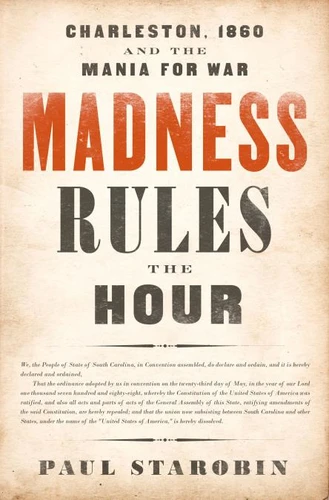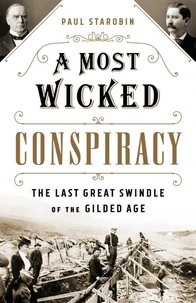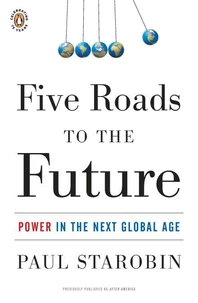Madness Rules the Hour. Charleston, 1860 and the Mania for War
Par :Formats :
Disponible dans votre compte client Decitre ou Furet du Nord dès validation de votre commande. Le format ePub protégé est :
- Compatible avec une lecture sur My Vivlio (smartphone, tablette, ordinateur)
- Compatible avec une lecture sur liseuses Vivlio
- Pour les liseuses autres que Vivlio, vous devez utiliser le logiciel Adobe Digital Edition. Non compatible avec la lecture sur les liseuses Kindle, Remarkable et Sony
- Non compatible avec un achat hors France métropolitaine
 , qui est-ce ?
, qui est-ce ?Notre partenaire de plateforme de lecture numérique où vous retrouverez l'ensemble de vos ebooks gratuitement
Pour en savoir plus sur nos ebooks, consultez notre aide en ligne ici
- Nombre de pages296
- FormatePub
- ISBN978-1-61039-623-3
- EAN9781610396233
- Date de parution10/04/2017
- Protection num.Adobe DRM
- Infos supplémentairesepub
- ÉditeurPublicAffairs
Résumé
From Lincoln's election to secession from the Union, this compelling history explains how South Carolina was swept into a cultural crisis at the heart of the Civil War."The tea has been thrown overboard -- the revolution of 1860 has been initiated." -- Charleston Mercury, November 8, 1860 In 1860, Charleston, South Carolina, embodied the combustible spirit of the South. No city was more fervently attached to slavery, and no city was seen by the North as a greater threat to the bonds barely holding together the Union.
And so, with Abraham Lincoln's election looming, Charleston's leaders faced a climactic decision: they could submit to abolition -- or they could drive South Carolina out of the Union and hope that the rest of the South would follow. In Madness Rules the Hour, Paul Starobin tells the story of how Charleston succumbed to a fever for war and charts the contagion's relentless progress and bizarre turns.
In doing so, he examines the wily propagandists, the ambitious politicians, the gentlemen merchants and their wives and daughters, the compliant pastors, and the white workingmen who waged a violent and exuberant revolution in the name of slavery and Southern independence. They devoured the Mercury, the incendiary newspaper run by a fanatical father and son; made holy the deceased John C. Calhoun; and adopted "Le Marseillaise" as a rebellious anthem.
Madness Rules the Hour is a portrait of a culture in crisis and an insightful investigation into the folly that fractured the Union and started the Civil War.
And so, with Abraham Lincoln's election looming, Charleston's leaders faced a climactic decision: they could submit to abolition -- or they could drive South Carolina out of the Union and hope that the rest of the South would follow. In Madness Rules the Hour, Paul Starobin tells the story of how Charleston succumbed to a fever for war and charts the contagion's relentless progress and bizarre turns.
In doing so, he examines the wily propagandists, the ambitious politicians, the gentlemen merchants and their wives and daughters, the compliant pastors, and the white workingmen who waged a violent and exuberant revolution in the name of slavery and Southern independence. They devoured the Mercury, the incendiary newspaper run by a fanatical father and son; made holy the deceased John C. Calhoun; and adopted "Le Marseillaise" as a rebellious anthem.
Madness Rules the Hour is a portrait of a culture in crisis and an insightful investigation into the folly that fractured the Union and started the Civil War.
From Lincoln's election to secession from the Union, this compelling history explains how South Carolina was swept into a cultural crisis at the heart of the Civil War."The tea has been thrown overboard -- the revolution of 1860 has been initiated." -- Charleston Mercury, November 8, 1860 In 1860, Charleston, South Carolina, embodied the combustible spirit of the South. No city was more fervently attached to slavery, and no city was seen by the North as a greater threat to the bonds barely holding together the Union.
And so, with Abraham Lincoln's election looming, Charleston's leaders faced a climactic decision: they could submit to abolition -- or they could drive South Carolina out of the Union and hope that the rest of the South would follow. In Madness Rules the Hour, Paul Starobin tells the story of how Charleston succumbed to a fever for war and charts the contagion's relentless progress and bizarre turns.
In doing so, he examines the wily propagandists, the ambitious politicians, the gentlemen merchants and their wives and daughters, the compliant pastors, and the white workingmen who waged a violent and exuberant revolution in the name of slavery and Southern independence. They devoured the Mercury, the incendiary newspaper run by a fanatical father and son; made holy the deceased John C. Calhoun; and adopted "Le Marseillaise" as a rebellious anthem.
Madness Rules the Hour is a portrait of a culture in crisis and an insightful investigation into the folly that fractured the Union and started the Civil War.
And so, with Abraham Lincoln's election looming, Charleston's leaders faced a climactic decision: they could submit to abolition -- or they could drive South Carolina out of the Union and hope that the rest of the South would follow. In Madness Rules the Hour, Paul Starobin tells the story of how Charleston succumbed to a fever for war and charts the contagion's relentless progress and bizarre turns.
In doing so, he examines the wily propagandists, the ambitious politicians, the gentlemen merchants and their wives and daughters, the compliant pastors, and the white workingmen who waged a violent and exuberant revolution in the name of slavery and Southern independence. They devoured the Mercury, the incendiary newspaper run by a fanatical father and son; made holy the deceased John C. Calhoun; and adopted "Le Marseillaise" as a rebellious anthem.
Madness Rules the Hour is a portrait of a culture in crisis and an insightful investigation into the folly that fractured the Union and started the Civil War.





